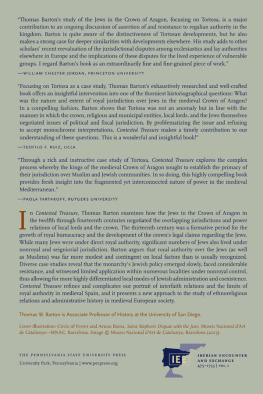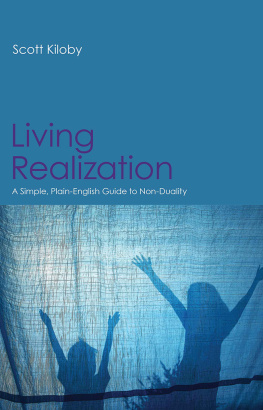by Thomas L. Palotas
Words from one of the first bhajans written in praise of Shivabalayogi.
The Telugu words mean:
by Thomas L. Palotas
First Edition 2007, Shivabalayogi Seva Foundation
Second Edition, Ebook Publication , Shivabalayogi Seva Foundation
ISBN 978-1-304-79289-1
All rights reserved.
Dedicated to all of Shivabalayogis devotees.
We are His treasure.
Lord Shiva delegates to the yogi the task of protecting the peace of the world This living form of Lord Shiva becomes identified with the divine Shiva through tapas and is no other than Shiva the incarnation. He devotes his great acquisition of penance and meditation to the welfare of the world.
Ancient prophesy about Shivabalayogi in .

Notes to the Reader
Some Indian Words
Sanskrit and the modern Indian alphabets have no upper and lower cases, so quotes in those languages do not have capital letters.
Swamiji normally did not communicate in English, although he knew some ph r ases and there were many occasions when it was apparent that language was no barrier to his understanding. Swamijis own words, as translated by his interpreters or as recalled by devotees, are bold and italicized .
Many Western readers do not know the meaning or the context of Indian words, and in most cases, there are adequate English words so the reader need not be interrupted by turning to a glossary at the end of the book. However, there are some concepts for which we have no English words, and there are some Indian words that have become familiar. These words generally are not italicized and we list them below because the reader will find them frequently.
amma Mother, a polite way of addressing a woman.
arthi (pronounced art-hi ; Sanskrit arati ) Giving honor by waving burning camphor in a clockwise circle. Arthi also refers to the bhajan sung when arthi is given.
asana A seat. Typically in this book, it refers to the seat or dais where Swamiji would sit and meditate or give darshan.
ashram A place (literally, shelter) set aside for spiritual practice or teaching and where the guru and devotees may stay.
aum (also om and omkara) The sound from which creation emerged.
balayogi Boy yogi. The term is generally used to refer to anyone who begins tapas while still a boy. Note that Bala in Shivabalayogis name, Shiva-Bala-Yogi, is a different word in Sanskrit. It is a name of Parvati, the Divine Mother. See .
bhava Literally, an attitude, mood or feeling. It refers to feelings of devotion towards the divine ( bhakti bhava ), and a wide range of spiritual experiences including bliss, spiritual currents, visions, and various degrees of disassociation from ordinary consciousness. Sometimes translated as spiritual trance.
bhava samadhi A type of samadhi induced through bhava. It is an indescribable experience of being immersed in the divine presence.
bhajan Song of praise to the divine; spiritual song.
darshan The blessings received from the presence of a holy person, place or image.
dhyana O ne pointed meditation without object, the meditation technique which Shivabalayogi gives during initiation.
Dhyana Mandir L iterally, meditation temple; the small structure built to protect Shri Swamiji during his tapas in Adivarapupeta.
garu A Telugu word used as a form of respect.
homa (also yagna ) S acred fire through which offerings are made to gods.
ishtadeva A form of God to which an individual is drawn and prefers to worship.
-ji A suffix added to names to show respect.
kirtan A gathering in which bhajans are sung.
linga A round and tall shaped stone worshipped as a form of the divine soul, Shiva.
maha P refix meaning great.
mahasamadhi The great or ultimate samadhi, the process by which a yogi drops the physical body.
Mahashivaratri The annual, great night of Shiva, the most auspicious time to honor God in the form of a yogi.
N adi A ny of several ancient , astrological prophesies of individuals lives and events through the ages, past , present and future (as distinguished from another meaning of nadi which refers to a channel of subtle energy in the astral body) .
namaskar S ee pranam.
pada puja Worship of the feet; ceremonial washing of the gurus feet.
pranam The act of placing the two palms together, as if in prayer, and bowing. When done to ordinary individuals as a form of greeting, it is called namaskar .
prashad Blessed food.
puja Worship.
rishi An ancient sage; i.e., a yogi.
sadhana Spiritual practice.
sadhu A holy man; one who has completed some spiritual practice.
samadhi A state of spiritual awareness in which the person is no longer conscious of ordinary surroundings. Samadhi also refers to a place where a yogis presence is anchored, particularly the final resting place of the yogis body.
shakti S piritual energy or power
Shivalinga see linga.
swami Literally, master in the sense of owner or proprietor. It refers to one who has renounced worldly attachments. Shivabalayogi simply referred to himself as Swami or Swamiji, as do his devotees.
tapas The process of meditation in samadhi to attain God or Self realization, sometimes referred to as spiritual austerities or penance.
Telugu Shri Swamijis native language which is spoken in the state of Andhra Pradesh.
vibhuti Ash. As used in this book, ash that has been blessed by Shivabalayogi.
Map of Indian Ashrams

Map of India showing the locations of ashrams and some other places mentioned in this book.

One Hundred Eight Names
shatha-ashtothara namavali
A Garland of 108 Mantras in Praise of Shri Shri Shri Shivabalayogi Maharaj

aum shri maha ganadhipataye namaha


















